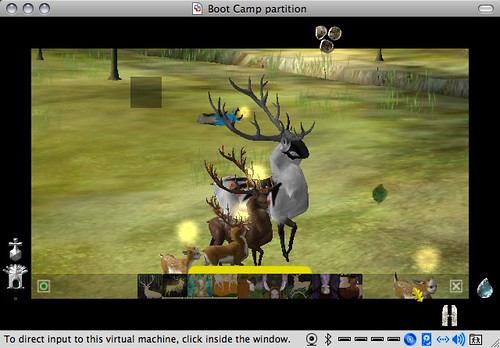Playing a small student game called Hush (or at least attempting to do so since I suck at any kind of challenge-based gameplay), made me realize how important the fictional aspect is for the enjoyment of horror.
Hush is a game set in Rwanda during the massacres between Hutus and Tutsis. You play a woman who is trying to silence her crying baby so that the invading soldiers don’t find them.
I have a lot of ethical issues with this game (and “news gaming” in general). And I completely disapprove of the confusion it generates between the emotions caused by the gameplay and those by the narrative. But that’s not the point here.
The soundscape of the game is incredibly effective. It’s frightening, it’s shocking. But because it is real, or pertains to a real event, I can’t seem to get the same enjoyment out of it as I might from a similar scene in an actual horror movie or game. In horror fiction, it’s fun to experience the threat of death and pain, to be overpowered by a massive and mysterious force, to be faced with a bleak and hopeless situation. But only, it would appear, within the context of fiction. Experiencing a life threatening situation in real life is not fun at all. Even imagining experiencing a horrific situation that happened for somebody else, is by no means amusing.
And yet we love horror!
Horror is not really about being frightened, is it? Experiencing real fear is not fun. What we experience in horror fiction is not real fear.
Maybe the emotion triggers the release of some chemicals in our brain that, when confronted with a real threat, help our body to respond appropriately. But when in a comfortable situation, these chemicals act like an amusing drug. Maybe all the things we do for entertainment manipulate the chemical reactions that used to be of vital importance to survival and turn them into a source of fun.
But it’s only fun if it’s fake.
![]()

 which of course renders the multiplayer experience of TEF unusable. I don’t know if the connection problem with TEF is just a problem with my network or my computer though, so if you
which of course renders the multiplayer experience of TEF unusable. I don’t know if the connection problem with TEF is just a problem with my network or my computer though, so if you 
